-
 Bitcoin
Bitcoin $113900
-1.39% -
 Ethereum
Ethereum $3517
-4.15% -
 XRP
XRP $3.009
1.59% -
 Tether USDt
Tether USDt $0.9997
-0.04% -
 BNB
BNB $766.8
-1.41% -
 Solana
Solana $164.6
-2.38% -
 USDC
USDC $0.9998
-0.02% -
 TRON
TRON $0.3277
0.65% -
 Dogecoin
Dogecoin $0.2023
-1.67% -
 Cardano
Cardano $0.7246
0.05% -
 Hyperliquid
Hyperliquid $38.27
-4.77% -
 Sui
Sui $3.528
-0.52% -
 Stellar
Stellar $0.3890
-0.73% -
 Chainlink
Chainlink $16.16
-2.69% -
 Bitcoin Cash
Bitcoin Cash $539.9
-4.38% -
 Hedera
Hedera $0.2425
-2.00% -
 Avalanche
Avalanche $21.71
-0.97% -
 Toncoin
Toncoin $3.662
5.73% -
 Ethena USDe
Ethena USDe $1.000
-0.02% -
 UNUS SED LEO
UNUS SED LEO $8.964
0.35% -
 Litecoin
Litecoin $107.7
2.33% -
 Shiba Inu
Shiba Inu $0.00001223
-0.40% -
 Polkadot
Polkadot $3.617
-0.97% -
 Uniswap
Uniswap $9.052
-2.49% -
 Monero
Monero $295.1
-3.79% -
 Dai
Dai $0.9999
0.00% -
 Bitget Token
Bitget Token $4.315
-1.85% -
 Pepe
Pepe $0.00001060
0.11% -
 Cronos
Cronos $0.1342
-2.72% -
 Aave
Aave $256.0
-0.87%
What are the trading platforms for Bitcoin ETF in China?
No Bitcoin ETFs are approved in China due to strict crypto regulations; investors face significant risks with offshore exchanges.
Mar 28, 2025 at 05:57 pm
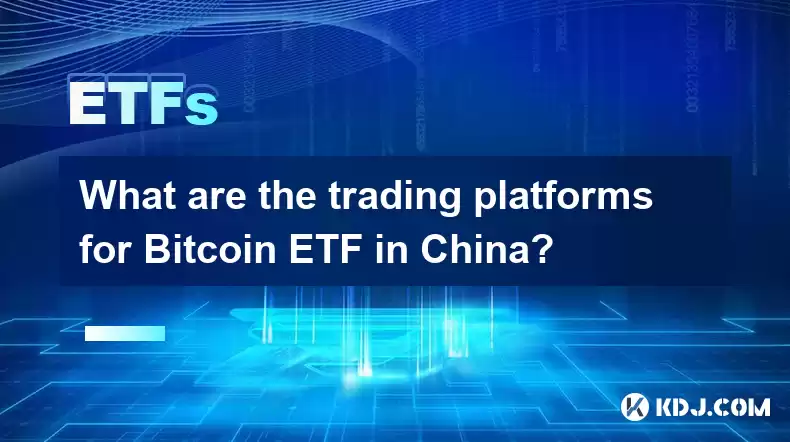
The Current State of Bitcoin ETFs in China
Currently, there are no officially approved Bitcoin ETFs trading on any exchange in mainland China. The Chinese government maintains strict regulations on cryptocurrency trading and investment, making the launch of a Bitcoin ETF highly unlikely in the near future. While some offshore exchanges might offer Bitcoin trading, these are not subject to Chinese regulatory oversight and carry significant risks. Investors should be extremely cautious of any claims suggesting otherwise.
Understanding the Regulatory Landscape
China's regulatory stance on cryptocurrencies is firmly negative. Previous crackdowns have resulted in the banning of cryptocurrency exchanges and mining operations within the country. This stringent approach stems from concerns about financial stability, money laundering, and capital flight. The government's focus remains on controlling financial risk and maintaining the stability of the renminbi. Any potential relaxation of these policies regarding Bitcoin ETFs would be a significant shift in the country's overall approach to cryptocurrencies.
Exploring Alternative Investment Options
Given the absence of Bitcoin ETFs in China, investors interested in Bitcoin exposure face limited legitimate options within the country's regulatory framework. Some might consider investing in companies involved in blockchain technology, though this is indirect exposure and carries its own set of risks. International investments in Bitcoin or other cryptocurrencies are possible, but these activities are not officially sanctioned and might expose investors to legal and financial risks.
The Challenges of Launching a Bitcoin ETF in China
The hurdles to establishing a Bitcoin ETF in China are considerable. They include:
- Regulatory Uncertainty: The lack of clear regulatory frameworks for cryptocurrencies creates a significant barrier to entry.
- Price Volatility: The inherent volatility of Bitcoin poses challenges to the stability of a regulated ETF.
- Market Manipulation: The potential for market manipulation in the cryptocurrency market is a concern for regulators.
- Capital Controls: China's capital controls could hinder the flow of funds needed for a successful Bitcoin ETF.
- KYC/AML Compliance: Meeting stringent Know Your Customer (KYC) and Anti-Money Laundering (AML) requirements is crucial but difficult in the crypto space.
Offshore Exchanges and Their Risks
While some offshore exchanges may offer Bitcoin trading, engaging with them from within China carries significant risks. These risks include:
- Regulatory Non-Compliance: These platforms are not subject to Chinese regulations, leaving investors vulnerable.
- Security Risks: Offshore exchanges can be targets for hacking and fraud, potentially resulting in substantial losses.
- Legal Ramifications: Participating in unauthorized cryptocurrency trading could lead to legal consequences within China.
- Lack of Investor Protection: Investors lack the same level of protection afforded by regulated domestic markets.
The Future of Bitcoin ETFs in China
The prospect of Bitcoin ETFs becoming available in China remains uncertain. Any potential shift in the government's stance would require significant changes in regulatory policy and a more favorable view of cryptocurrencies. Until then, the current regulatory landscape effectively prevents the establishment of a legitimate Bitcoin ETF trading platform within China.
Understanding the Differences Between Bitcoin and Bitcoin ETFs
It's crucial to understand the difference between directly owning Bitcoin and investing in a Bitcoin ETF. Directly owning Bitcoin involves holding the cryptocurrency itself, which offers greater potential upside but also carries higher risks. A Bitcoin ETF, on the other hand, would represent ownership in a fund that tracks the price of Bitcoin, offering potentially lower risk and greater liquidity, assuming one existed in China.
The Importance of Due Diligence
Before making any investment decisions related to cryptocurrencies, it's essential to conduct thorough due diligence. Understand the associated risks, research potential investment options carefully, and consult with qualified financial advisors. Never invest more than you can afford to lose. The cryptocurrency market is highly volatile, and losses can be substantial.
Frequently Asked Questions
Q: Are there any legal ways to invest in Bitcoin in China?
A: Direct investment in Bitcoin is effectively banned in mainland China. Indirect exposure through companies involved in blockchain technology is a possibility, but it's not a direct Bitcoin investment and carries its own set of risks.
Q: What are the penalties for trading Bitcoin illegally in China?
A: Penalties can range from fines to criminal charges, depending on the scale of the illegal activity. The exact penalties are subject to Chinese law and can vary.
Q: Could the Chinese government change its stance on Bitcoin ETFs in the future?
A: While it's theoretically possible, a significant shift in the government's regulatory approach would require substantial changes in policy and a reassessment of the risks associated with cryptocurrencies. Currently, such a change appears unlikely in the near future.
Q: What are some safer alternatives to investing in Bitcoin in China?
A: Consider investing in traditional asset classes like stocks, bonds, and real estate, which are subject to more established regulatory frameworks and offer greater investor protection within China. Always consult a financial advisor for personalized guidance.
Q: What is the likelihood of seeing a Bitcoin ETF in China in the next 5 years?
A: Given the current regulatory climate, the likelihood of seeing a government-approved Bitcoin ETF in China within the next five years remains extremely low. The government's stance on cryptocurrencies would need to undergo a dramatic shift.
Disclaimer:info@kdj.com
The information provided is not trading advice. kdj.com does not assume any responsibility for any investments made based on the information provided in this article. Cryptocurrencies are highly volatile and it is highly recommended that you invest with caution after thorough research!
If you believe that the content used on this website infringes your copyright, please contact us immediately (info@kdj.com) and we will delete it promptly.
- Bitcoin Strategy: Saylor's Not Hoarding, He's Building an Empire
- 2025-08-02 22:30:12
- Bitcoin Bloodbath: Macro Pressures and Liquidations Unleash Crypto Chaos
- 2025-08-02 22:30:12
- Tron, Cold Wallets, and Crypto Trends: What's Hot in the Market?
- 2025-08-02 23:10:12
- Bitcoin's Wild Ride: Davinci, Investors, and the $500K Dream
- 2025-08-02 23:50:12
- Worldcoin, Identity, WLD Price: Decoding the NYC Crypto Buzz
- 2025-08-02 21:10:12
- Shiba Inu: Utility and Community Strength Drive Crypto's Evolution
- 2025-08-02 21:50:12
Related knowledge
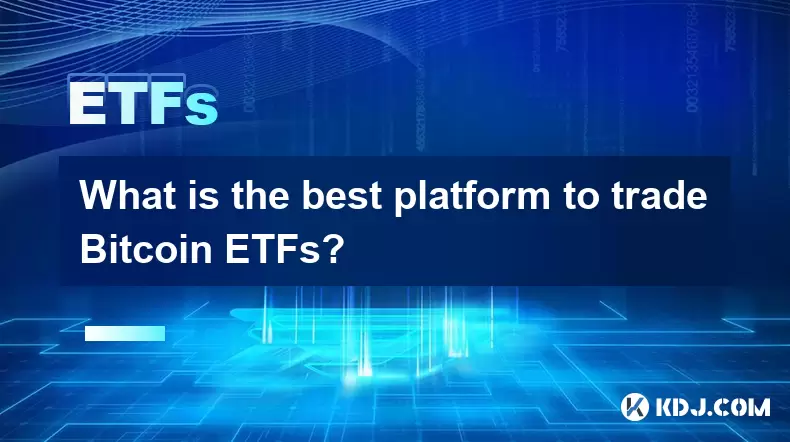
What is the best platform to trade Bitcoin ETFs?
Jul 23,2025 at 04:14am
Understanding Bitcoin ETFs and Their Role in TradingBitcoin Exchange-Traded Funds (ETFs) have gained significant traction among traditional and crypto...
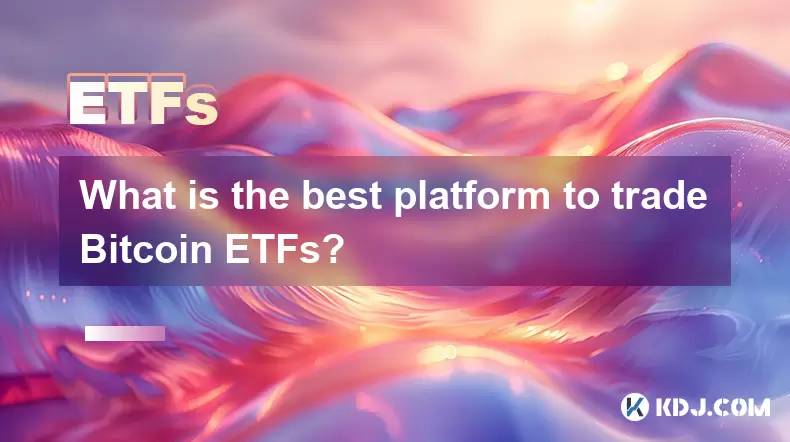
What is the best platform to trade Bitcoin ETFs?
Jul 17,2025 at 03:50pm
Understanding Bitcoin ETFs and Their Role in the MarketBitcoin Exchange-Traded Funds (ETFs) are investment vehicles that track the price of Bitcoin wi...
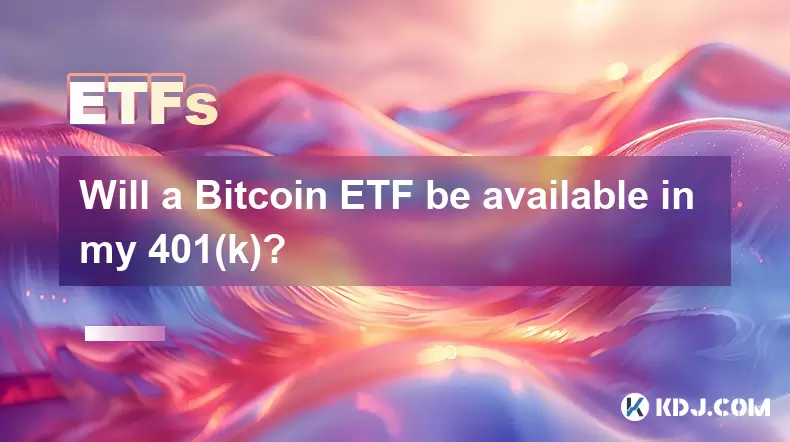
Will a Bitcoin ETF be available in my 401(k)?
Jul 17,2025 at 10:42pm
What is a Bitcoin ETF?A Bitcoin ETF (Exchange-Traded Fund) is an investment vehicle that tracks the price of Bitcoin without requiring investors to di...
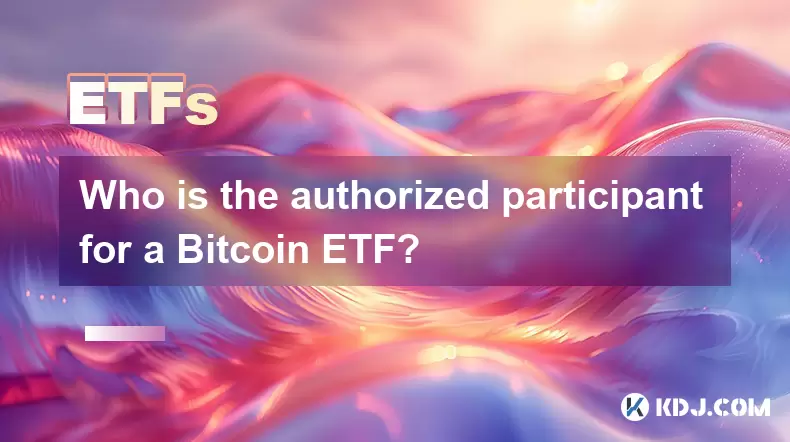
Who is the authorized participant for a Bitcoin ETF?
Jul 18,2025 at 12:42am
Understanding the Role of Authorized Participants in Bitcoin ETFsIn the context of Bitcoin Exchange-Traded Funds (ETFs), an authorized participant (AP...
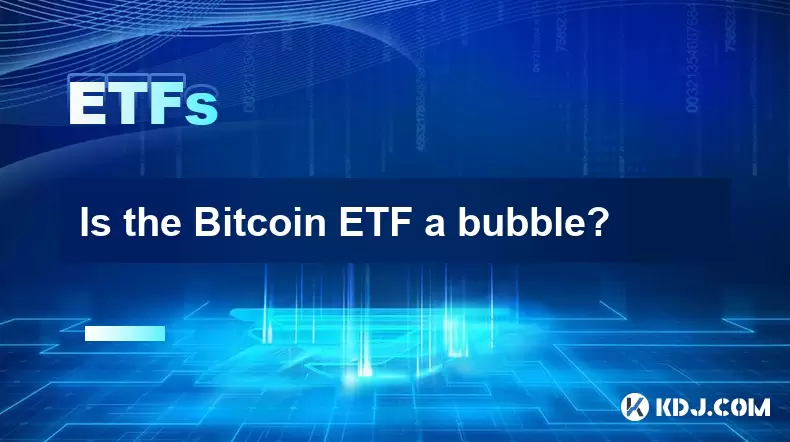
Is the Bitcoin ETF a bubble?
Jul 20,2025 at 06:57am
Understanding the Bitcoin ETF ConceptA Bitcoin Exchange-Traded Fund (ETF) is a financial product that aims to track the price of Bitcoin without requi...
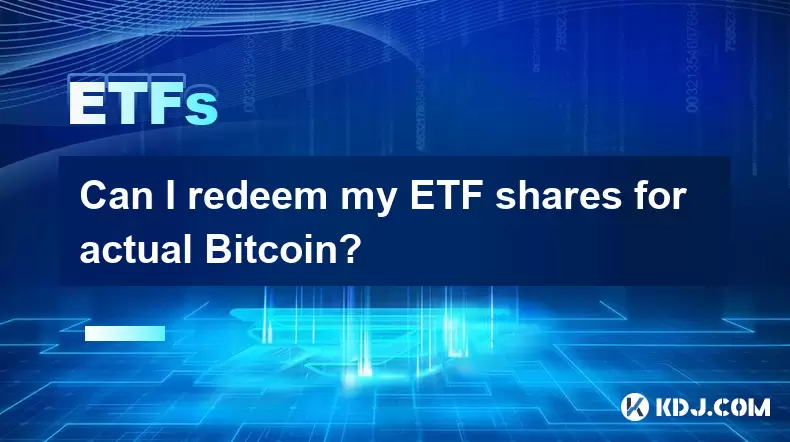
Can I redeem my ETF shares for actual Bitcoin?
Jul 17,2025 at 03:14pm
Understanding ETF Shares and Their Relation to BitcoinExchange-Traded Funds (ETFs) have become a popular investment vehicle for those looking to gain ...

What is the best platform to trade Bitcoin ETFs?
Jul 23,2025 at 04:14am
Understanding Bitcoin ETFs and Their Role in TradingBitcoin Exchange-Traded Funds (ETFs) have gained significant traction among traditional and crypto...

What is the best platform to trade Bitcoin ETFs?
Jul 17,2025 at 03:50pm
Understanding Bitcoin ETFs and Their Role in the MarketBitcoin Exchange-Traded Funds (ETFs) are investment vehicles that track the price of Bitcoin wi...

Will a Bitcoin ETF be available in my 401(k)?
Jul 17,2025 at 10:42pm
What is a Bitcoin ETF?A Bitcoin ETF (Exchange-Traded Fund) is an investment vehicle that tracks the price of Bitcoin without requiring investors to di...

Who is the authorized participant for a Bitcoin ETF?
Jul 18,2025 at 12:42am
Understanding the Role of Authorized Participants in Bitcoin ETFsIn the context of Bitcoin Exchange-Traded Funds (ETFs), an authorized participant (AP...

Is the Bitcoin ETF a bubble?
Jul 20,2025 at 06:57am
Understanding the Bitcoin ETF ConceptA Bitcoin Exchange-Traded Fund (ETF) is a financial product that aims to track the price of Bitcoin without requi...

Can I redeem my ETF shares for actual Bitcoin?
Jul 17,2025 at 03:14pm
Understanding ETF Shares and Their Relation to BitcoinExchange-Traded Funds (ETFs) have become a popular investment vehicle for those looking to gain ...
See all articles

























































































